Orphans of the Savannah
By Adam Matson
I went to Kenya to avoid mating rituals. The year I was twenty-six about half of my friends got married. I went to weddings all summer. Sat at the singles tables, wondering if this was all there was to life. You can only browse so many Williams and Sonoma wedding registries before you start to feel the choke of settled life.
I was living in Boston, working in a marketing firm. I had a tiny apartment. Cubicle in a downtown office. It was the life high school and college had prepared me for, and it left me feeling utterly soulless. I showed up to work every morning and immediately felt tired. The window beside my desk looked directly into another office building. I watched the people sitting in cubicles in the adjacent building, wondering if their lives were any more interesting than mine.
Every Thursday my friends and I gathered at a bar on Beacon Hill to drink and discuss our dynamic and accelerating lives: engagements, internships, jobs, promotions. We called this meeting the Thursday Club. Week after week we toasted and laughed, ordered $16 martinis. I felt like a mouse running on a wheel.
On a Thursday night in October I left work and shuffled up the hill. The group was already a round deep at the bar. Brendan and Mary announced their engagement, and Tyler Dunn knocked over his chair jumping up to buy their next drinks. As we toasted the happy couple, I thought: what crap will I order them from Williams and Sonoma?
Then I made an announcement of my own.
“I’m going to Africa,” I said. “To work with elephants.”
Everyone stared at me. Why? was the primary question. And for how long? And what the hell for?
I was going for three months, volunteering at a wildlife orphanage in Kenya’s Tsavo National Park. Why for so long? Because I didn’t think a two-week vacation would cure my cubicle blues. I knew nothing about elephants, except that they were mercilessly slaughtered by poachers for the ivory in their tusks, sometimes leaving their baby offspring to fend for themselves against predators and the elements. In my mind I pictured an orphaned elephant stumbling across the savannah, lost, hungry, alone, and for some reason I felt a deep kinship with the animal.
None of my friends could believe that I would quit my job. They knew how hard it was to find that good job, that downtown job we’d all dreamed about in college.
“So you’re just leaving everything?” my friend Julie asked. “Everything you’ve worked for?”
I shrugged. Everything what? I had no answer she or any of them would find acceptable. Julie and I had been officially broken up for about six months, though there were still occasional late-night text summons. We would quickly hook up, and watch long hours of insipid television.
“I might be back,” I said to the table. Nobody bought my next drink.
My plan was to arrive in Kenya in November, during the shorter of the two rainy seasons, volunteer with the elephants until February, then spend a week at the beach in Mombasa, before returning home. But as I rode the bus through lush terrain on the road to Tsavo, I started to suspect my stay might be longer than a few months. I had spent four years in Boston, suffocated by traffic and humanity. The grasslands in Southeast Kenya seemed to spread out forever, rolling upward in green hills to the mountains. The pressure in my chest began to loosen.
The Tsavo Elephant Orphanage was owned and operated by a British couple, Alice and Donovan Price. Donovan was a veterinarian from a wealthy family, and had lived in Africa most of his life. Alice had originally wanted to be a painter, attended art school in Paris, then inherited some money and went to Africa seeking adventure. In Kenya she met her future husband while out painting in the bush. At the time Donovan was tracking lions, before he switched his focus to elephants. I was surprised to learn the Prices had no children, and unsurprised later when Alice told me, while sitting in a mud bath with a baby calf, that the elephants were her children. If anyone in the States had said this to me, I might have laughed. But Africa was different. The land was ancient and truthful. It had been around long before humans, and would survive long after we followed the many species we had already crowded out.
For the first few months I slept in a bunkhouse. Employees and volunteers lived, ate, and slept on-site. There were no two-bedroom apartments with a pool and a gym nearby. The nearest large town was Voi, a rambling two-hour drive from the orphanage.
The manager of day-to-day operations was a Kenyan named George Odhiambo. George lived on the grounds in a small, one-story house with his wife and four children. He spent much of his time taking the orphaned elephants out for walks in the park, where they would meet, and hopefully bond with, the wild elephants that lived there. One of my duties was to join George on these walks. We were sort of chaperones, taking the young ones out for day trips, then rounding them up, and bringing them back to the orphanage at night.
“Are you married, Jeffrey?” was the first question George asked me when we met, followed by: “Do you have children?”
“No, and no,” I said.
George introduced me to his family before even taking me to see the elephants, and his wife Sophie fed me lunch. His children roped me into a game of soccer in their dusty yard. From then on George seemed to take a personal interest in my lack of spouse and offspring, coaching me on the importance of perpetuating the life cycle.
My primary duty at the orphanage, as I had sort of expected it would be, was to clean up shit. Elephants produced biblical quantities of excrement, which I had to scoop out of their living areas. The shit was then packaged up and transported to various locations for use as fertilizer.
“This will be your best friend in Tsavo,” George said, handing me a shovel.
“The shit is actually very important to us,” Alice Price explained to me, one day when I was covered with excrement. “It tells us whether the animals are healthy or sick, if they are dehydrated, if the food we give them is providing proper nourishment.” She listed all the ways in which animal excrement could be abnormal, and told me to keep an eye out for aberrations.
By the second month I did develop a keen eye for elephant feces. I sent a long email home to my friends in Boston detailing everything I had learned about excrement, and its animal health implications.
“Sounds like you are full of shit, Jeff,” Tyler Dunn replied.
Julie asked when I was coming home.
Most volunteers stayed at the orphanage for a week or two, before returning to wherever in the world they kept their real lives. Some just seemed to want to get their picture taken with an elephant. Many arrived assuming that the elephants would take an instant liking to them, that they would make lifelong friends with a majestic, ancient beast. Americans especially were miffed that the elephants could be shy and aloof.
Elephant babies were like human babies, in that they primarily responded to, and wanted to be around, their mothers. When they were orphaned, they often had to learn to trust humans as surrogate parents. Many of the young elephants suffered from serious emotional trauma, having witnessed their mother being slaughtered by poachers. They were wary of humans. They didn’t want to be petted. Very young babies often did not survive their transition to the orphanage. The first time I saw a baby elephant die I felt a deep emptiness, like a profound personal rejection. Alice told me that the baby died because it did not recognize me as someone it could trust to feed it. So it did not eat. It died because it missed its mother. I cried in my bunk that night, and called home to my own parents the next day.
“Life is fragile, sweetie,” my mother said. “All babies need to know they have a mother.”
Then she passed me off to my father, who recommended I send my resume to a consultant, so I could present “this elephant thing” in the most advantageous light.
In the wild, elephant families were oriented around the females, with the leader of the family group generally being the oldest and wisest cow, the matriarch. Aunts and sisters helped raise the young calves, and together the group traveled and nurtured each other, the mothers teaching the children how to find food and water, how to survive. When a young male reached his teenage years, he usually turned sexually curious and aggressive, like humans. Unlike humans, the teenaged males turned their sexual attention on their sisters and cousins, at which point the mother would expel them from the group, leaving them in the wild to fend for themselves. Males were welcomed back during mating season, but otherwise they were basically encouraged to get lost. Sometimes they formed their own groups, passing the days fighting for status and the right to impregnate the females. Or they became loners, rambling the plains on their own, guided by an inner spirit and agenda.
After the rainy season the nights turned warm and dry. George and I often roamed the grounds of the orphanage after dark, smoking a joint, checking to see what nocturnal activity might be astir.
“How many brothers and sisters do you have, Jeffrey?” George asked.
“One brother, one sister.”
“Why did your parents give up?”
“Children are expensive,” I said. “We live in Boston. There are too many people already.”
“I have thirteen brothers and sisters,” said George. “I don’t even know all their names.” He laughed. “Of course I do. We live in Nairobi. And I always know when they are nearby. It is the same with elephants. They always know who is here.”
I thought of my own siblings. We were not close. My brother and sister could have worked in the cubicles on either side of me, and I still wouldn’t have seen or heard from them until Christmas.
George stopped to listen to the breeze. “Wait a minute,” he said.
I stood perfectly still, thinking I was about to be mauled by a lion. George walked quietly through the darkness toward the facility’s perimeter fence.
“I hear my old friend,” he said.
Assuming it was safe to move, I followed George to the fence. I could feel a significant presence, like a large area of warmth, wafting toward us. Normally I would have attributed this feeling to the weed, but after two months, I could easily smell the earthy musk of an elephant. I could even tell it was a male.
“Do you see him?” George asked.
“I smell him.”
“He is ten yards away.” George leaned on the fence. “Kamari. Come to us, my good friend. Kamari!”
Vibrations rippled through the ground. Against the navy blue glow of the star-dotted horizon a great blackness formed.
“There is my boy,” George said.
I knew the elephant stood right in front of us, but I could not see him. Instead I felt the soft thud of his trunk against my face. I froze. The rough skin wormed over me, and then a large blast of air hit me in the face.
“He is checking you out,” George said.
“He doesn’t think I’m food, does he?”
“Jeffrey. They only eat plants.”
“I know.”
The elephant huffed, a long, deep exhale. The trunk poked me a couple more times, then vanished back into the darkness. The vibrations rippled again beneath my feet.
“That is Kamari,” George whispered. “He is like you, Jeffrey, a lone bull. But gentle. His name means moonlight. We call him that because he usually comes at night. Two months since the last time I saw him.”
“I didn’t even see him,” I said. “He felt big.”
“He is the biggest elephant you will ever see.”
The end of three months came quickly. Just when I was starting to become a real connoisseur of elephant feces, I found myself pricing tickets for a flight home. I still planned to spend a week at the beach in Mombasa, now that the weather was hot, but I did not look forward to returning to Boston. A few of the orphans were starting to recognize me. One or two would trumpet at me when I took them for their afternoon walks.
I roamed the grounds of the orphanage, listening to the night sounds of Tsavo. There were no grinding machines, no honking traffic. I could breathe. Thinking about Boston conjured nightmarish visions of cubicles, wet asphalt, crowded subways. I did miss my friends, and I badly wanted a pizza. But I did not want to give up the open spaces.
A few days before my departure, Alice Price called me into her office.
“So you’re leaving us?” she asked.
“I don’t really want to,” I admitted. “I like it here. I feel like I’m just starting to understand things.”
“You’re good with the elephants, Jeff. You are patient and gentle. They respond to you. Many people think they like animals, but not everyone can connect with them.”
A warm breeze wafted through the open windows of her un-air-conditioned office. Outside I could see two orphans playing with an old tire.
“If you want to stay here,” Alice said. “We can hire you. It would not be a Boston salary, but you could live here at the orphanage, and there are not many expenses.”
I stared out the window, watching the young calves rolling the tire through the orange dirt. I wanted to join them, see if they would let me play.
Alice smiled. “What do you think?”
“What if you get sick?” my mother asked, when I called home with the news.
“I’m surrounded by veterinarians,” I replied.
My father put it more bluntly. “We didn’t put you through college so you could babysit animals, Jeff. Tony and Sharon are working their asses off. What’s your problem?”
After law school my brother had landed a job at Leechman and Cross, a downtown firm, while my sister was quickly ascending the communications ladder with the Boston Bruins.
“Two out of three ain’t bad,” I told my father.
I didn’t make it to the beach at Mombasa either. Alice set me up with a small room in the bunkhouse, where half a dozen of us lived full-time. I began spending nights with the baby orphans, sleeping on a cot next to a new arrival, sometimes for months at a time. The babies required feeding every three hours, even at night, and they needed to know that a warm body was nearby, for comfort. I learned to sleep with my arm dangling off the cot so that a baby could nudge me with its trunk. I even crawled off the cot and slept beside them on cold nights.
For two years I slept with baby elephants. After a couple of months I no longer noticed their overpowering smell. Nor did it occur to me that I had developed that smell myself. I did not interact with many female humans at the orphanage, especially any close to my own age. So I did not think about my smell. Mostly I thought about the babies, and focused on feeding them milk and Similac, getting them past those crucial early months until they could finally eat grass and tree bark.
Not all of the babies brought to the orphanage survived. Generally the younger the calf, the less likely it was to live. Many came in weak or sick. Others refused to eat. Some had injuries from poachers or predators. One morning I awoke to find my charge had died during the night. We had named her Kala, and she had only been with us for two days. Her eyes in death were gray and filmy. I sat on the floor and leaned against her for a long time. Even though I had only known her briefly, her passing felt like my own child had died in its crib. I often cried when the babies didn’t make it. Alice later told me that she couldn’t sleep the night after losing a baby. George kept a list of all the elephants that passed through the orphanage. He made sure each one had a name, and he could recall each of their stories. I learned to carry the deaths as a compromise, a tradeoff for saving the others.
Every afternoon I walked the orphans in the park. The wild elephants found us easily, lumbering over to greet the orphans with trumpeting or trunk-hugs. George and Alice could recognize many of the elephants in the park by sight, and by many I mean hundreds. Sometimes they could pick out an ex-orphan from a long distance. There goes Lucia, we raised her twenty years ago. There’s Alphonse, he always comes around when his friend Sydney is nearby.
One afternoon George and I were watching an elephant family playing in a mud hole with a few of our orphans, when George spotted a giant on the horizon. It was a bull, and an old bruiser from the looks of him; his tusks were only short nubs. A typical elephant his size would have tusks five feet long.
“There is my old friend!” George cried, and he began walking toward the giant. He cupped his hands to his mouth. “Kamari!”
To my surprise, the elephant started walking toward us. I expected the ground to shake, and puddles to ripple, like when the T-Rex shows up in Jurassic Park. But when the old bull arrived he greeted George by trumpeting and flapping his ears. He draped his trunk over George’s shoulders, and George clapped the rough skin with a dusty hand. Kamari stood almost thirteen feet tall, well over twice my own height. After inspecting George he threw his trunk over me. The tips of his snout gummed my face like a pair of fat fingers.
“He remembers you,” George said.
I was mildly flattered. I had only met him once. In the dark.
“He does not forget. He’s a good man. Aren’t you, my old friend?”
Kamari stood with us for a while, watching the babies in the mud pool. The adult females watched Kamari attentively, but did not seem too concerned about him. Eventually the elephant family moved away, and George and I rounded up the orphans. Kamari waited until the mud hole was empty, then waded in himself.
During my third year in Kenya, there was a terrible drought. The land turned a crispy golden orange. Grasses shriveled and disappeared. Streams and watering holes vanished like dreams upon waking. In the park, and elsewhere, animals died by the thousands. It was boom time at the orphanage.
I started traveling across Kenya with Donovan to retrieve orphaned elephants from various wildlife refuges. While riding the bumpy rural roads Donovan religiously applied sun tan lotion (he was a melanoma survivor), and educated me about the troubling history of human/elephant relations in Africa.
“Droughts force the animals to look for food anywhere they can get it,” he told me. “They raid farms, destroy crops. A single elephant family can consume a farmer’s entire crop in one meal. Understandably, the locals become agitated.”
“So their solution is to shoot them?” I asked.
“It’s their livelihood,” Donovan said. “Would you starve an elephant or your own child?”
“My child, probably.”
He grinned. “This problem will likely never be resolved. Elephants are like jet airplanes, they require lots of fuel, and lots of space to move. The human population grows, and cuts into their natural habitat. We save what we can.”
Tsavo was located in one of Kenya’s more arid regions. We felt the drought harder than many places. Alice spent weeks at a time overseas, fundraising, and contracting with bottled water corporations to import water for the orphans. Still, many of our charges died from dehydration, and every day we found corpses in the park, not just of elephants, but birds and other animals. Donovan told me that the drought was nature’s way of culling the population, but that didn’t lessen the tension at work. We all spent many sleepless nights attending to malnourished orphans. Everyone grew restless, waiting for the rain.
On a scorching afternoon I hiked through the park in search of Barnaby, a five-year-old calf who had wandered off during the previous day’s walk. By now I felt fairly comfortable in the bush, keeping a vigilant eye out for snakes. With the drought many plants and trees had died, and visibility extended for miles. I stopped every few hundred yards to scan the horizon with my binoculars. I could hear George in the distance calling Barnaby’s name. Barnaby had been with us nearly since birth, so we assumed he would not know how to find water in the wild. If we did not recover him within a day or two he would die.
After two hours of searching, I had seen no live animals, just one or two carcasses. Many of the herds had left to look for water. Where they expected to find it was anybody’s guess. Elephant matriarchs could remember the paths to watering holes for years, even decades. The family groups relied on the matriarchs to survive. I relied on my canteen, which was almost empty, and I was three or four miles from the orphanage. I leaned against a tree to catch my breath.
My first indication that something was wrong came as a feeling, like when the pressure drops right before a storm. I was sitting at the edge of a cluster of trees, not far from a dry creek bed. The air suddenly seemed devoid of all life.
I heard a rustling in the tall grass, thought it might be Barnaby, and called his name. Waited. Barnaby would come crashing out of the bushes, anxious to be led home. But the grasses remained still. I could no longer hear George crying out.
“Oh, shit,” I whispered.
The lion stepped out of the grasses, his enormous head and all-seeing eyes turned directly toward me.
I had no weapons, and little strength. I thought about climbing a tree, and if I hadn’t been exhausted I would have probably remembered that climbing trees was no problem for a lion.
This one looked starved and emaciated. I stood up, tried to straighten my posture. Animals needed to know who the alpha was, who was master of the territory. I thought maybe I could bluff the lion.
But looking into his eyes I could see there would be no bluff. A lion’s stare was non-negotiable, his intent uncompromising. This was his yard. I was the intruder. He would go for my throat. I would die under the scorching Tsavo sun.
Then I felt vibrations in the ground. The grass parted, and out stepped an enormous elephant. The lion and I both turned at once.
It was Kamari. I recognized him by his bulk and his lack of tusks. Incredibly, sheltered beneath Kamari was Barnaby, hiding from the sun under the bull’s stomach. Barnaby stumbled and dragged his trunk. He was dehydrated, close to death. But he let out a fearful trumpet when he saw the lion.
The lion growled back. Kamari stamped the dirt with his foot. Slowly he stepped into the clearing beside the creek bed and stood between my tree and the lion. He extended his ears and lowered his head. I whispered his name, my throat parched and dry. The lion backed off toward the grass. He growled over his shoulder at Kamari, before skittering back into the brush, his body lowered to the ground like a scolded housecat.
When the lion was gone Kamari turned to me, lowering his ears. Light-headed with relief, I peeled myself off my tree and approached him. Barnaby trumpeted weakly. Kamari poked my shoulders with his trunk.
“Thank you, Kamari,” I said in a low voice. “Thank you, my friend.”
Kamari nudged Barnaby and they started walking. Sighting the horizon through my binoculars, I saw that he was leading the calf toward the orphanage.
“Think I’ll tag along,” I said, my heart rate down-shifting to normal.
We reached the orphanage around sundown, and I returned Barnaby to his pen. I met George by the fence. Together we watched as Kamari stood off in the distance, staring at us with quiet nobility.
“He saved my life,” I said, after telling George what had happened. “Barnaby’s too. If not for that elephant I’d be dead.”
“He’s a good man,” George agreed.
“Why doesn’t he have any tusks?” I asked. “What happened to him?”
“Poachers. Shot him and cut off his tusks with a chainsaw. Left him for dead. We found him in the savannah, hundreds of miles to the west. Years ago.”
“And he still trusts humans?” I asked. “If I were him I would step on every human I saw.”
It was shockingly easy for an elephant to kill a person. A strong swipe of the trunk would do it.
George shrugged, watching as Kamari ambled back into the park. “Maybe he forgives.”
The drought eventually gave way to a generous rainy season, raising the spirits of everyone at the orphanage, humans and elephants alike. Kamari remained nearby for most of this time period. George said that he probably wanted to be near a reliable water source. This gave me the opportunity to learn a bit about the elephant everyone called “the old man.”
Nobody knew for sure how old Kamari actually was, but Donovan estimated that he was around 40, judging by the progression of his teeth. Despite the fact that Kamari had been viciously shot and maimed by poachers, he seemed relatively at ease around people. He allowed Donovan and Alice to perform periodic wellness checks, inspecting his mouth and trunk and feet. Kamari’s favorite treat was apples and strawberries chopped up and mixed together. Once he had his snack he would let the orphanage staff inspect him.
For weeks I made an effort to ingratiate myself to the gentle bull that had saved my life. I fed him apples, rubbed his trunk, doused him with cold water from a hose. Once or twice I cleared the orphans out of the park’s better mud holes so that Kamari could have a mud bath all to himself. Despite his enormous size, which generally would have given him status, he remained deferential to his peers, allowing other animals to eat, drink and bathe before he took his turn.
“Tell them to get lost, Kamari,” I implored him as he stood patiently watching a trio of calves rolling in the mud. The young ones had more than adequately covered themselves, and now seemed to be playing for fun.
Kamari walked over and nudged me with his trunk, then stood there like a big, dumb dog, sort of wagging his tail.
“Okay, old man. Have it your way.”
It was almost by accident, however, that I discovered Kamari was far from dumb. During my lunch breaks I liked to take a sandwich and a beer out just beyond the camp’s perimeter fence and sit in the shade of an acacia tree. There I would read the many books I ordered online. One afternoon I was reading a collection of humorous essays, and laughing to myself in the shade. I was so engrossed in the book that I did not notice Kamari had snuck up on me, until his hulking mass blocked out the sun.
“What’s up, my friend?” I asked. He was staring at me curiously, his trunk raised up to scent the air. “Listen to this.”
I read him a particularly funny line from the book and, unable to help myself, burst out laughing. Kamari lowered his trunk and made a low groaning sound, like a trombone.
“I don’t have any apples,” I told him. I read him another passage from the book, again laughing to myself. Kamari repeated his trombone call, then stepped forward and wrapped his trunk around my shoulders.
“You have a sense of humor, don’t you?” I said. Every time I laughed Kamari trumpeted at me, which made me laugh even harder, at the absurdity of carrying on with an elephant, like a couple of playground chums.
From then on I continued to order humorous books off the internet, and whenever Kamari came around, I read them to him. I even started to believe that the big bull genuinely liked me, for something other than my apples, or the refreshing blast of the hose. He would listen to me read and laugh, blow his trombone, and poke me with his trunk. Sometimes he stood listening to me read for over an hour.
But Kamari lived on Tsavo time, and as often as he would show up to say hello, he would also vanish, wandering back into the park, sometimes not returning for weeks or months.
The year after the drought I went with Donovan Price to Amboseli National Park, to advise a group of park rangers how best to approach and handle orphaned elephants. We trekked out into the savannah on a breezy afternoon, under a sky so vast we could see many different weather systems. To the east the sky was crystal blue, but on the western horizon the blackish clouds of a storm gathered over Lake Conch. To the south stood the arresting majesty of Mt. Kilimanjaro, crowned with snow, clouds swirling over the purple peak.
The grasslands extended in all directions. A herd of zebras galloped to safety away from us. Across the plains, clusters of elephants lumbered toward water, like diesel trucks grinding along a distant road. We did not encounter any orphans on our expedition, and the elephants we did come upon kept a cautious distance. But as we set off for base camp in the late afternoon, one of the rangers literally stumbled over the carcass of a lion. Everyone gathered around the corpse. It was uncommon to come that close to a lion under any circumstances, and unless the animal was sedated or dead, you didn’t want to.
Immediately we noticed that the lion was female, and that it had not died of natural causes. A bullet hole oozed drying blood at the base of the animal’s skull. Donovan and a senior ranger knelt by the lion and inspected the wound.
“Just shot,” the ranger said to Donovan.
Together we fanned out to search the tall grass. It was illegal to shoot lions in the park, but poachers, and unscrupulous game hunters, did it anyway. It was not long before I heard the hooting signal of one of the rangers. Following the calls, we found two men crouching beneath a cluster of trees. One was a bearded white man holding an enormous rifle, and I recognized a Dallas Cowboys tee-shirt under his camo vest. The other was black, probably a local tribesman, likely the hunter’s guide.
The senior ranger spoke to the local man in Swahili, a heated conversation, culminating with the guide surrendering a weapon of his own.
“Now wait a minute,” said the white man in a thick American drawl. “I paid good money to come out here. And I don’t plan to return without my prize. Maybe there’s some way we can work this out.”
To my surprise, everybody in the group turned to me. The rangers knew I was American, and maybe they figured I could decipher the hunter’s intentions. I shrugged and stepped up to him. He was bigger than me, and older, but my blood was boiling from the sight of the dead lioness, and I was in no mood to negotiate.
“You broke the law,” I said quietly.
He smiled at the sound of my voice. “From what I hear the law is open to interpretation, partner.” He reached into his vest and pulled out a leather wallet, stuffed with American hundreds.
I spat on the ground. The man’s smile vanished. One of the rangers noticed the money. He took the man’s wallet. The cash disappeared into the senior ranger’s uniform, and now a new conversation began, in Swahili, much less hostile than before.
“Looks like there won’t be an arrest,” Donovan muttered behind a swig from his canteen.
Another ranger called out a greeting from the brush, stepping into the clearing to join us. Grinning, he cradled a yawning lion cub in his arms.
“Well, look at that,” the hunter said.
Donovan walked up to the American. “So you killed two lions today,” he said. “Where’s the rest of your money?”
The hunter made no reply. The ranger set the lion cub down, and the senior officer announced in English that it was time for everyone to go. The cub sat shaking on the ground, crying out for its mother. The rangers began walking away through the bush, leading the hunter and his guide back to their kill. Donovan Price frowned at me.
“My country, not my blood,” I said.
He turned and followed the rangers, shaking his head.
I bent down and picked up the lion cub.
I named him Max, short for Maximus, after the fictional Roman gladiator from the Ridley Scott film. It could not have been a less appropriate name. My adopted lion, whose upbringing I had undertaken personally, was not a warrior, a fighter, or even a scrapper. He was a gangly, dim-witted kitten, and I had no doubt that he would grow up to be a big, dumb, tail-chasing lummox- the fool of the animal kingdom, rather than its king.
“What did you bring that home for?” George asked me when Donovan and I returned to the orphanage. “That is not a house kitty. Do you know what he will grow up to be?”
“When he comes of age, I’ll turn him loose,” I said, as George’s children crowded around to fondle a real, live lion cub.
“He’ll kill you first,” George said. “It is sad what happened to his mother, but you should have left him to die. You deprived another animal of a meal.”
“Just be glad your mother didn’t leave you in the bush, George,” I muttered.
George laughed at me. In fact, everyone laughed at me, in between warning me that my new best friend would one day grow up to kill me.
It did not take long before we all came to suspect that something was wrong with Max, besides his unprecedented affection for other creatures. When he initially arrived at the orphanage he was sluggish, listless, and his appetite waxed and waned. He would collapse at, or on, my feet, and lie there for several minutes, eyes pinched shut, mouth wafting open and closed. Donovan took Max to a veterinary clinic in Nairobi. When he returned he informed me that Max had cardiomyopathy, an enlarged heart.
“He won’t live, Jeff,” Donovan told me. “I’m sorry. We saved him from one death, but we cannot prevent the other.”
I took the news with the same feeling of rejection I always felt when one of my elephant babies passed away. Nature was either mercilessly fair, or pitilessly unfair, depending on how you looked at it. One thing we had all come to understand was that death would come when it wanted to. But as I took Max back to my room in the bunkhouse, and laid him down in the used dog bed I had stolen from George, I told myself that Max didn’t know he was sick. He would not understand that he was supposed to die, not like a person would when diagnosed with terminal heart disease, or cancer. He was an animal. He would grow up however I raised him. And so I decided to see him through to his natural end, however soon or distant that might be.
Nobody at the orphanage wanted to adopt a lion.
“When he grows up, he’ll want to kill the elephants,” Alice Price told me as we discussed the cost and logistics of raising Max. “In the meantime, I’m worried he will stress them out, making their survival in the crucial early months that much more difficult.”
“If we socialize him, the elephants may accept him,” I theorized. “Like they do with rhinos, or George’s dogs.”
“A dog is a domesticated animal, Jeff. Elephants will know what Max is. Many of them have already seen lions in the wild. Some have had family members killed by lions.”
I was under no delusion that I could train Max to be a big, cuddly housecat. Playful though he was, in time he would grow dangerous. His instincts would kick in. He was a predator, not a pet.
“If he wasn’t sick, I might feel differently,” I told Alice. “I know our animals sometimes die. I accept that. But nature seems determined to kill Max. That’s why I want him to live.”
Many at the orphanage were determined to let nature kill Max, including Donovan Price, who was more pragmatic than the rest of us. But I could tell Alice agreed with me on some level, that none of our charges were inherently worth less than any others. None were to be outright abandoned. We had several discussions about Max before reaching an agreement. I agreed to help pay for Max’s housing, feeding, and medical costs out of my own salary. Alice agreed that we could keep Max for as long as he wasn’t a problem. And so, despite the majority view that I was an idiot and my pet should be euthanized, I began the long and tedious process of trying to civilize the young lion cub.
For the first few months of Max’s life I kept him with me at all times. He slept in the dog bed in my room in the bunkhouse. I bought a collar and a leash, and brought him with me wherever I went. I kept him well-fed. Because of his heart condition, he needed medications frequently, and it fell largely to me to provide him with them. In the evenings I talked to him and played with him, and tried to socialize him to the other staff members at the orphanage, most of whom, including George, looked at him like they wished they had a rifle.
My first concern with Max was the safety of the elephants. I was not sleeping with the new arrivals as much anymore, but I volunteered to resume this duty, reasoning that I could take care of two babies at once. Max could spend time with the elephants, and they with him, and hopefully they could grow accustomed to each other. The older orphans at the facility, as Alice had predicted, were wary of Max. Some were terrified of him. I tried to reason with them by showing them that Max could be pet and handled and fed, and that he wouldn’t kill me, but there was only so much I could do to convince an elephant to disregard millions of years of evolution.
For his part, Max seemed to like the elephants. He would rub up against them, and try to convince them to play. I kept him away from the larger animals that I thought might step on him out of fear or anger, but I found that he enjoyed being near the babies. He crawled into their pens and slept beside them, and they seemed grateful to have a warm companion to sleep with. He licked and cleaned their faces, and shared bottles of milk with them. His favorite trick was to lie on his back while a young elephant rubbed his belly with its trunk. The first time I saw him receiving this treatment, I immediately grabbed my camera so I could film it.
“You see?” I said, showing the video to George. “He’s just a big kitty.”
“He’s going to be much bigger soon,” George said.
Max grew up to be a slightly undersized adult lion. His heart condition made him smaller and weaker than he should have been. He often had trouble eating, and he developed asthma, which kept him laid up and sluggish for days, especially during the rainy season. When he reached the age when I became concerned that he would rip off some part of my body while trying to play with me, I took a chunk out of my meager savings and built Max a holding pen near the facility’s bunkhouse. We all decided he should not live near the elephants, as many of them were still (or more) afraid of him. Soon we had a regular schedule of feeding and cleaning him. Donovan took over the more complicated medical duties, giving Max injections of the medications we couldn’t mix into his food. The other staff members grew to not hate Max, and since I spent all of my free time hanging out with him so he would grow accustomed to humans, he even allowed a few of the other staff to pet him or feed him his meals.
But a remarkable bond formed between Max and several of the orphans he had cuddled with as babies. There were about a dozen elephants that grew up thinking Max was one of them. His best friend was a gregarious male named Burton. Sometimes in the afternoons, when I took this particular group for a walk in the park, I brought Max along with them (now walking him on a chain). I made sure he was well-fed and well-medicated. Max would walk alongside Burton with the gentle canter of an aging horse, the two of them nudging each other and stopping to inspect things like bugs and grass. Together we rambled through the park on our walks: a naïve American, a happily-stoned lion, and a cohort of half-tamed elephants, none of us ready for the wild in the strictest sense, but all of us following the path back to our origins.
*
In the summer of my eighth year in Kenya, changes began to take place at the orphanage. Donovan Price’s melanoma returned, and he went to England for several months of treatment and rest. Alice spent about half her time in England with him, and the other half trying to balance all the responsibilities of the orphanage. George took over some of her administrative duties, and I stepped up behind him to take over maintenance. With Alice gone much of the time, fundraising for the orphanage suffered. Max regularly needed costly trips to the veterinarian in Nairobi, and I worried that budget cuts at our facility would ultimately hurt him.
There was another complicating factor that nobody could control.
“Farmers are taking over the elephants’ natural habitat,” George told me, as we received more and more orphaned and refugee animals. “The government, of course, supports the farmers. Sympathy for the elephant is declining.”
Sympathy for the elephant had earned a victory in Kenya in 1989, when many African nations officially admonished the ivory trade. Kenyan President Daniel arap Moi publicly burned thirteen tons of confiscated ivory. Still, poachers continued to hunt and kill elephants, and this problem resurfaced as rapid population growth created more sympathy, as it were, for humans.
Reluctantly, Alice Price cut several staff members from the orphanage, even as we continued to take on more animals. She kept me on, telling me over the phone from England that I was an asset to the elephants, and that my status as a westerner could help with fundraising from the United States. She expanded the volunteer program, and opened the facility to tourists.
“So now we are also a zoo,” George told me.
The orphanage became a regular stop on the safari circuit, especially among wealthy families with children. Children could touch and play with real, live elephants. And for many of these new western visitors, I became the unofficial guide.
Several of our older orphans could be relied upon to play their part for the fundraising effort. Burton, perhaps the friendliest elephant I had yet encountered, even let kids ride him. Marina, a playful seven-year-old female, seemed to relish performing the mud bath routine for camera-happy onlookers. Other elephants earned brownie points simply for touching tourists with their trunks. The interspecies curiosity, it seemed, was mutual.
One old man who did not seem interested in the onrush of strangers was Kamari. He came around the orphanage less and less, usually only during droughts, often arriving at night. I would encounter him out by the fence on random evenings, his hulking warmth a welcome presence. I did not mind performing PR for the good of the company, if it helped raise donations for the cause, and helped keep my job secure. But I had not come to Africa to be surrounded by Americans, with their compulsive need for attention and receipts.
Kamari seemed to sympathize with my feelings. He met me at the fence and clamped his big trunk over my shoulder, releasing epic sighs of breath.
“The times they are a-changin’,” I told him, assuming he would appreciate the wisdom of Bob Dylan. “And we don’t need a weatherman, do we?”
The tourists were naturally drawn to the elephants, but they were also curious about our resident lion. Everyone wanted to see Max, especially children, even though many of them ran from his cage, screaming for their parents. I did not let anyone touch or pet him, for liability reasons. But when a crowd gathered, I would saunter into Max’s pen myself, roll the big doofus onto his back, and rub his belly, while he purred and flicked his tail.
“How do you keep him so docile?” a pretty Australian volunteer asked me, as I was talking her through Max’s feeding routine.
“Heroin,” I said. “Max is a serious junkie. Mostly he just sits around and watches TV.”
My joke got a laugh, and for a moment I remembered what it was like to flirt with someone, but the truth of my comment wasn’t far off. As Max’s heart trouble worsened, his circulation grew poor, and he often staggered around on aching joints. I would find him sitting down early in the morning, licking his elbows and feet. Donovan gave him morphine for the pain, and Max’s demeanor, if not his health, did seem to improve. He drooled a lot, but at least we could approach him.
At some point, amidst the onslaught of tourists, I became fixated on the idea that I could train Max to do tricks, make him perform a sort of circus act, and that this would help lubricate the wallets of park visitors and would-be donors.
“Bad news,” I told Max as I walked into his pen with a bag of his favorite jerky treats. “You have to earn your keep.”
I made sure he’d eaten his breakfast each day before beginning our training, hoping he wouldn’t mistake my hand for a snack. But even though I plugged him full of jerky, and took many time-outs to rub his belly, Max proved a mostly incompetent disciple. Unlike dogs, who responded to verbal cues, and had a natural inclination to please their masters, cats responded only to food, and didn’t have the slightest interest in pleasing anyone. I tried to get Max to do basic tricks, like turn a circle, stand on an elevated platform, and roar on command. But the only “trick” he truly excelled at was lying down so I could tickle his fur.
“He’s too old for tricks,” George told me, repeatedly. “And he’s a wild animal, as you keep forgetting.”
“But he listens to me,” I protested, even as Max lay sprawled in a shady corner of his pen, mouth open as he snapped at imaginary bugs.
“It is you who does not listen,” George said.
So what, I thought. The orphanage was full of doubters. Alice Price came around for my morning training sessions and stood silently outside Max’s pen, arms crossed. Donovan was only slightly more encouraging, admitting that I sure could make Max lie down. But everyone’s skepticism only made me more determined to tame the wild beast. I could not explain why it was so important for me to do this. I just had to make Max obey. Nobody I had ever known had tamed a lion. It was not something they taught you in college.
After months of training, I managed to teach him one new trick. He could sit down, most of the time, if I raised my arm and held a piece of bacon jerky. But once I had given him the jerky he would simply remain seated, sometimes licking his paws, usually just staring out toward the grassy hills of the park.
“Max, you have to do more than just sit there and look stupid,” I told him.
He yawned at me.
“I see you’re making progress,” George said, leaning against the wood frame of the pen.
At the edge of the facility I saw Kamari standing by the fence, flicking his tail and staring at me. George turned and waved at the elephant. Kamari released a deep sigh, and walked back into the park.
“Another critic,” I said.
The rainy season brought fewer tourists, which was all right with me. Tsavo was alive with the scents of healthy flora, and I spent long afternoons taking the orphans for walks in the park. The wild elephant families welcomed the newcomers into their groups. One by one we released our orphans back into the wild. They joined the herds, roaming across their territory, visiting us once in a while, if we were lucky. Occasionally we would get a particularly aggressive cow who would attempt to adopt an orphan as her own, although “kidnap” might be a better word than “adopt.” In these cases George and I would have to approach the group and separate the calf, which usually caused the adult cow much distress, and more than once I worried that I would be stepped on or trunk-swiped.
“You would fight too, if it was your child,” George said.
I nodded. “I’m sure I would.”
“Soon you will have to choose a mate, Jeffrey. Start making babies of your own.”
“Someday, George,” I said, playing out our old joke.
Sometimes I wondered what would happen if I returned to Boston, to the American dating scene, after spending nearly a decade interacting primarily with large, non-verbal mammals. I had not “dated” a woman since leaving the States, and in Tsavo there were very few women around. I had no interest in tourists, and I was often too busy to consider hooking up with a volunteer. I was long out of the game. American women would eat me alive.
But this was exactly the type of concern I had come to Africa to escape. News from back home featured an avalanche of weddings and birth announcements. My nominal salary at the orphanage prevented me from attending any weddings. Every Christmas when I went home it seemed there was a new baby to meet, all identically cute, each making me miss my elephants, while feeling relieved that I personally did not have to take care of any human babies.
Meanwhile babies continued to arrive at the orphanage as well. George and Sophie welcomed their seventh child, a daughter, and we had our own celebration, hosted by Alice and Donovan. George’s younger children rode elephants. His older children came home from school in Nairobi.
It was not uncommon for relatives in Kenya to come for long visits when a baby was born. Among the extended family came George’s youngest sister, Rashida Odhiambo. Rashida was two years older than me, had studied both in the United States and England, and was so beautiful she shocked my dormant longing for The Female back to life. George, once again a happy father, ensured me that Rashida was single, and would enjoy being entertained while she was in Tsavo.
Suddenly I was unable to concentrate. The presence of Rashida wafted around me like a lightning storm on the plains. Desperately I combed the dusty attic of my memory for any salvageable romantic souvenirs. In Tsavo it was not really possible to date in the American sense. There was a village near the orphanage, but dinner and a movie were out of the question. If I wanted to spend time with Rashida, there was really only thing I could do: invite her on my walks with the orphans, and converse with her in the park. So that’s what we did. Every day. Until finally I decided to impress her with Max.
“What’s the closest you have ever been to a lion?” I asked her about a week into her visit.
“I have seen them in the savannah,” she replied. “But not close enough to worry.”
“Well, I have a lion here that’s too dumb to be dangerous.”
She had seen Max a couple of times, of course. He was impossible to miss. But with all the baby celebrations and family time, she had not yet been properly introduced to my own adopted son.
I took her to Max’s pen for his evening feeding. She watched from outside the cage as I fed Max a heap of meat, mixing in his nightly pills. Meanwhile, I explained how we had found Max, and the efforts I had made, largely unsuccessful, to civilize him.
“Mostly he’s like the orphanage mascot,” I said.
“Except instead of waving a flag, he eats you.”
I fed Max another sizable helping of meat. When I was confident that he was adequately stuffed and medicated, I invited Rashida inside the pen.
“Oh, my goodness,” she whispered as she carefully stepped inside.
I closed the gate behind her. She smiled nervously, glancing between Max and me, and I wondered if this was actually a good idea. Normally the only people allowed near Max were staff at the orphanage familiar with his handling procedures. I took Rashida’s hand and led her over to where Max lay, flicking his tail beside his food dish. I pulled a handful of jerky from the bag of treats I always brought into his pen and set them down in front of him. He gobbled the jerky down in one soundless bite, then, as I crouched beside him, flipped over onto his back. I rubbed his sturdy chest. He opened his mouth and purred, a strange habit he had developed, which I thought meant that he was both happy and perhaps having difficulty breathing. Gently I guided Rashida’s hand to his belly.
“Oh, Jeffrey, he is so strong,” she whispered, her fingers dancing across his coat like a breeze tickling grass.
“He’s basically a big pussycat,” I said, as Max nuzzled my hand. “I don’t usually bring people in here. If he had not been raised in captivity, we couldn’t do this.”
That’s when I heard the hiss.
My hand froze, and Rashida froze, and Max’s whole body went stiff. He suddenly flipped over onto his paws. I stood up, stepping in front of Rashida.
“What is it?” she whispered.
I glanced around the pen. It was dusk, and blue pools of shadow covered the ground.
“Easy, Max,” I said.
The hiss came again. There was only one thing in the world that absolutely terrified me, and that was snakes. In all my years in Kenya I had miraculously avoided encountering a serpent, even while out in the bush, a winning streak I attributed to vigilant, maybe even paranoid, attention.
I followed Max’s gaze, and saw the snake coiling against the wall of the pen, not fifteen feet away. Max’s pen was not impenetrable. It was encircled by a three-foot concrete base, and encased in wood framing with steel wiring. He could not escape, but there were many ways for other creatures to sneak in.
“Oh my god,” Rashida said when she saw the snake. It was three or four feet long, and as it uncoiled and raised its head to challenge us, I saw the steely dark scales of the black mamba. Silently I cursed myself. There was no excuse for my stupidity. Now I was locked in a cage with an innocent woman, a poisonous snake, and a lion.
Max lowered into a crouch. All traces of food- or drug-lethargy vanished. His eyes became orbs of deadly truth. I had never seen Max in attack-mode before, had erroneously allowed myself to believe he did not have an attack-mode. Now the wild had taken hold of him.
I backed slowly away from the confrontation, steering Rashida toward the door of the pen. Feeling the latch with my fingers, I tried to open the gate without taking my eyes off Max.
The snake opened its mouth and hissed, then lunged forward. Max pounced, swiping with his paw. The blow sent the snake flying through the air. It clattered on the ground, and Max pounced again, his jaws snapping at the snake’s head.
Rashida buried her face in my shoulder. I turned and threw open the lock on the gate. We both jumped out of the pen. I slammed the door shut behind me, locking it.
“Will the snake’s venom kill him?” Rashida asked. We watched as Max slapped at the snake with his paw.
“Shit, I don’t know,” I said. Another wave of panic swept over me. “Are you all right?”
“Yes,” she said, wiping her brow.
“I’m going to get Donovan,” I said.
Heart pounding, armpits pouring cold sweat, I ran across the facility to Alice and Donovan’s house.
When we returned to the pen, not even two minutes later, Rashida was standing beside the gate, smoking a cigarette, and Max lay calmly by his food dish, flicking his tail.
“Where is it?” Donovan asked, clutching a long pole and a net.
“It was in there,” I said. I looked at Rashida.
“He ate it,” she said.
Around the same time I developed a crush on Rashida, Kamari developed his own crush on a young former-orphan named Nara. When nature informs a bull elephant it is time to mate, he enters a state of testosteronic frenzy called musth. Estrus, the cow’s period of fertility, sometimes only lasts a few days a year, and this tight window of opportunity can turn an otherwise reasonable male into a menace. Bulls will engage each other in vicious, tusk-thrashing combat for the right to chase down a cow, mount her, and deposit his seed, with all the speed and romance of a college freshman. The cow then rejoins her family group, whereupon the matriarch encourages the proud bull, in no uncertain terms, to fuck off, while the females celebrate the hopeful pregnancy with trumpeting and the flapping of ears. Over the years I witnessed the elephant mating ritual many times, and it always made me wonder what would happen if the same dynamic was adopted by humans. Every month when the moon was right all the men in a given area would gather in a pit, or an arena of some kind, and fist-fight each other until one lone bloody survivor was left standing. This champion would then run after the ovulating woman, corner her somewhere, and subject her to a hurried bout of consensual (or non-consensual) sex. Forgoing all the sticky social components of the long human mating process, the happy couple would return to the woman’s family, whereupon her mother would kick the strutting suitor out of the house, then shower her hopefully-pregnant daughter with kisses, cake and mimosas.
Neither the traditional, prolonged human method, nor the blunt, expedient elephant method of courtship and reproduction seemed quite right to me. I could not imagine fighting another man for the right to essentially rape a woman I liked. But the minefield of human social relationships seemed equally daunting. The lonely hours surfing dating websites, the asinine conversations over sushi and wine, the silent inadequacy of knowing you didn’t make enough money- all seemed like proof of a rigged game. I thought of Rashida, a beautiful, intelligent, dynamic woman, and I could easily see myself falling in love with her. But just as easily I saw her feeling unsatisfied by me: an asocial wanderer with no money who felt more comfortable around elephants than people. I almost wanted the simplicity of the elephant mating ritual. I could have sex with a beautiful woman, then her family could tell me to get lost. With no other choice, I could return to the jungle and continue to live quietly among the animals.
Nara, the object of Kamari’s affection, was a gregarious female who frequently acted as a liaison between younger orphans and the elephant groups in the wild. We first noticed that Kamari was interested in her when her family group approached a popular watering hole, and was soon accosted by a bull in musth. Kamari appeared and stood guard over the watering hole, and the other male eventually backed off, deferring to Kamari’s hulking size. Kamari then assigned himself to bodyguard duty, and continued to watch over Nara whenever she and her family were drinking and bathing.
“I have never seen him pick a girl before,” George said, as he and I and Rashida watched Kamari lingering off to the side of the watering hole, like a shy boy at a middle school dance.
“Do you think the old man has a chance?” I asked.
“I don’t know. He may have to fight for it.”
“All men are the same,” Rashida scoffed.
Kamari’s crush came to a head a couple of days later. Another male, younger than him, but armed with a full set of tusks, challenged Kamari near the watering hole. I had seen bulls fighting and play-fighting before, but this was the first time I felt scared by a fight. Kamari’s mangled tusks were only stubs, and though he was bigger than his opponent, he could easily be impaled in combat.
Nara’s family group watched with what was either mild concern or solemn disinterest as Kamari and the other bull tore up dust. Kamari was indeed a fearsome warrior, his mighty feet shaking the ground when he stomped. But the other bull deflected his lunges, shoving Kamari away, prodding him with his tusks. For a moment I thought I was going to watch one of my best friends in Tsavo die a brutal death. There was nothing I could do to stop the fight. George and I were working hard to corral the frightened orphans, and in any case there was no way a person could break up a grudge match between two bull elephants.
The fight ended with the other male pinning Kamari’s head and trunk to the ground. Shaking and flailing, Kamari failed to throw his opponent off, and eventually he bowed in submission. From a distance I could see that his body was bleeding from several puncture wounds, but none of the gashes seemed to be pouring blood. The other male stepped back and Kamari stood up and moved off. He lumbered away into the bush without even a backward glance, and this effectively ended his would-be courtship of Nara. The victorious bull approached the awaiting female group and mounted the young cow.
“It’s not his fault he cannot fight,” George said when we were back at the orphanage. “If he had his tusks he would be like Alexander the Great.”
“Instead some Chinese trinket shop is selling his ivory,” I said.
Rashida was more circumspect. “Maybe he can find another girlfriend,” she said. “One who likes a gentle man.”
“That’s not how it goes in the wild,” I said. “The females always end up mating with the biggest assholes. Boston is the same way.”
“Nature favors the takers, Jeffrey,” George said. “You see what you want, you take it.”
“That’s what a bully does.”
“Shut up, George,” Rashida said. “You asked Sophie to marry you four times before she finally said yes.”
“But I did not give up,” he said. He gave me a nudge. “It is a good thing a poacher did not take my tusks.”
Kamari did not return to the orphanage after his defeat by the watering hole. He went off to wherever it was he always went. I often pictured him in some distant corner of the park, living among other elephants, venerated for his age and wisdom. Or perhaps he spent his nights ravaging the crops of local farmers, waging war against humans as vengeance for taking his tusks. Wherever he went, I knew I would never see it. I respected Kamari’s privacy. We should all be allowed a corner of the world where we could disappear.
Two weeks after the birth of George and Sophie’s baby, the happy couple finally ran out of food to feed their visiting relatives, and most of the relatives left, taking with them the air of celebration. I returned to nursing baby elephants, to shoveling shit, to quietly begging American tourists and visitors for donations to support the orphanage. The usual functions of the job now seemed less important to me, like the air of purpose had been let out of the balloon. I realized that it was not going to be easy for me to go through the routine of my day, thinking about Rashida, but not seeing her. Once my eyes had been opened it was impossible to pinch them shut.
Rashida remained at the orphanage longer than her relatives. I saw her speaking with Alice Price a few times, and I started to hope that she might join us permanently. She continued to observe me feeding and caring for the young orphans, and watched me interacting with Max.
“Do you like it here?” I asked her one afternoon as we took the orphans into the park.
“I do,” she said. “I have been visiting many of the national parks, seeing many animal rescues. I am preparing for my new job.”
“What’s your new job?”
“I am going to help run a rescue,” she said. “Not just elephants. All kinds of animals.”
“At one of the parks in Kenya?”
“No,” she said, smiling. “South Africa. I leave in a month.”
I felt the rest of the air squeeze out of the balloon, the familiar combination of rejection and fate, like when one of the elephants died, only deeper- the certainty that the course of nature did not steer itself through me.
“That is why I came to visit George and his babies,” she said. “I will not see them for a long time. I will miss my family.”
“I’m sure they’ll miss you,” I said. “It’s been fun having you here. I know I-”
I stopped, caught myself, thought of how ridiculous I sounded. Then decided to tell her anyway.
“I don’t meet many women here,” I said. “Mostly elephants. They’re friendly, but it’s not the same.”
Rashida laughed, touching my arm. “Jeffrey, you can come visit me in South Africa. You know how to save elephants. We would welcome you.”
I nodded. It was a familiar promise I had heard many times in Boston. Let’s meet up for drinks. Translation: we will not see each other again.
We walked on under the afternoon sun. Rashida would leave Tsavo, and my life would go on as it had been before she came. Maybe George was right, that life favors those who take what they want, not those who wait around for the rain.
The SUV arrived at the orphanage in the height of the dry season. A black Mercedes, only the tires smeared with orange dirt. Government.
Alice and Donovan had worked a long time to ingratiate themselves with the government of Kenya. The Tsavo Elephant Orphanage, from a PR standpoint, was good for the powers that be. Wealthy foreigners worked together with native Kenyans to preserve nature’s bounty. Even more convenient, the orphanage largely footed the bill. We received minor subsidies from the government, but the real privilege they granted us was the opportunity to locate our facility in the national park. It was not often that they came around to remind us that we were ultimately their guests.
George summoned me to Alice’s office after the official had already been in there for about half an hour. Normally I was not privy to the Prices’ interactions with the government. I quickly ran to the bunkhouse and changed into a fresh shirt, washed my face and hands, then joined George in the office. Alice was seated behind her desk, her face a mask of dissatisfaction. Donovan leaned against the wall behind her, staring at the floor.
The official did not rise from his chair in front of Alice’s desk, but instead flashed me a curt grin. Sweat beaded his forehead. He did not introduce himself by name.
“Jeff is Max’s primary handler,” Alice told the official. “He oversees feeding, administers medications, and serves as host to tourists who wish to see Max. In this capacity, Jeff has fostered a great deal of good will, both for the orphanage, and for Kenya.”
“Tourism is important,” the official said. “But you have always been clear about your purpose here, Mrs. Price. You are running a rescue operation. Not a zoo. A zoo is different.”
Alice sighed minutely. “You are correct, sir. This is not a zoo. Max is merely a guest. An exception, not the rule.”
“An exception. The lion is a dangerous exception, yes? A lion can kill a man.”
“An elephant can kill a man,” George said quietly. Alice glanced at him, and he said nothing further.
“This is a special case,” the official said, smiling at Alice. “You do good work here, Mr. and Mrs. Price, and we would like you to continue to do good work. But for a special animal, there will be a special fee.”
“What special fee?” I asked.
The man smiled at me, but did not answer.
“We run on a shoestring budget, sir,” Alice said. “Perhaps you mistake us for wealthy, but most of our funding comes from fundraising.”
“We also provide veterinary expertise to many other organizations,” Donovan added. “For which we are not compensated.”
The official stood and adjusted his suit. “I will return next week to conclude our discussion,” he said.
He did not shake any hands on his way out the door. Alice, Donovan, George and I stood silently in the office, listening to the SUV rumble away.
“Another smiling thief,” said George. “My country is full of smiling thieves.”
“What did he want?” I asked.
“Thirty thousand,” Alice said.
“What? Is he out of his mind? That’s two salaries.”
“It’s more than that, Jeff. It’s many elephants.”
She looked at me, and I could see that she was not pleased by the situation. I had never considered that any government official would have a problem with Max. He cost a lot of money, yes, but he also raised money, and the good will he extended as an ambassador to Tsavo was immeasurable.
“What are we going to do?” I asked.
“Unfortunately we need the government to be friendly,” Alice said. “Without their permission, we do not run an orphanage at all.”
She leaned back in her chair, but did not look away from me. I saw that this was not a negotiation.
“You’ve given him a good life, Jeff,” said Donovan Price. “We all have. I never thought he would live this long. You have both impressed me.”
I looked at George, who was shaking his head. I had begun to sweat again. I wished I had not changed my shirt for that smirking bureaucrat.
“One thing that is better about the United States,” I said. “There you can choose to bribe someone.”
It was a long, silent drive to Nairobi. I doped up Max more than usual with painkillers for his aching joints, and he snored peacefully in the trailer behind Donovan’s truck.
When we arrived at the hospital Max was pacing anxiously. He knew about the vet. He’d had many visits over the years, had received many shots. The standard procedure was for a veterinarian to come out to the trailer and give Max a sedative. Only when he was unconscious would they bring him inside the facility for care.
The doctor shook hands with Donovan, and nodded at me. I kept my arms crossed over my chest. Both Max and I saw that the doctor had a lengthy syringe in his hand. Two medical assistants wheeled a gurney outside, and parked it beside our truck.
“Is that it?” Donovan asked the doctor, indicating the syringe.
“This is it,” the doctor said.
“You’re just going to do it in the parking lot?” I asked. “Like shooting a damn horse behind the barn?”
The doctor looked at me, but did not say anything.
“Perhaps we could give a Jeff a minute,” Donovan said. “Max is a special friend to him.”
“I can bring him inside and sit with him,” I said. “He won’t hurt anyone.”
The doctor, his assistants, and Donovan spent several minutes in conversation, before reluctantly agreeing to accommodate my request. One of the assistants went inside the hospital, and came out a moment later holding a shotgun. I shook my head, and fed Max several handfuls of his favorite jerky. Then I attached a chain to his collar.
“Come on, bud,” I said. “Let’s walk.”
Max stretched his long, slender bulk, and the medical assistants took a precautionary step backwards. I felt strangely validated by their caution, proud that they respected Max’s power. It was safer and more practical to euthanize a lion in his cage, where the situation could be controlled, but it was also cowardly, I thought. You didn’t shoot a king through a set of bars. You granted him his dignity, let him walk to the gallows.
I led Max through the hospital parking lot. Drivers stopped their cars to stare. Inside, activity came to a standstill. Doctors, technicians, and surprised visitors watched as the lion strode coolly through the corridors. Max glanced around like a kid being brought to a new school. In all his life he never seemed to fully understand his own power, that he could command any creature on earth with a simple stare. Instead he only seemed to want to not disturb anyone.
We took him into an examination room, and attached his chain to two steel locks on the floor. Max made a cursory sniff of his surroundings, then lay down, looking to me for guidance. I gave him another handful of jerky.
“That’s it, bud,” I said. “Look at me.”
I continued to feed him while the veterinarian gave him the shot. Donovan leaned against the wall, shaking his head. “Safe trip, old boy,” he murmured. Max glanced briefly at the prick of the syringe, but turned back to my hand and the jerky.
“We should leave him now,” the doctor said. “It is safer.”
“I can stay,” I said.
No one argued with me. They left me sitting on the cool linoleum floor. I fed Max the rest of the bag of jerky, and he nuzzled my hand with his nose. He tried to flip onto his back, but the chain kept him fixed on his stomach. He rested his head next to my leg.
I thought about the empty pen back at the orphanage, now a useless structure. Five useless years spent trying to save a sick animal, only to have a government conman drive up one day in a fancy car and tell us it was all for nothing.
Max was going to die anyway. I had always known this. I thought about his enlarged heart every time I looked at him. But we were all going to die one day. Given the certainty of death, why not live?
It was October when I returned to Boston. October was my favorite month. Sunny days and cool nights. I went for long walks at night. Glanced into bars, but didn’t enter them. Passed street vendors, and drug dealers, and panhandlers, and crowds of yuppies staring at their phones. All the predators of the urban jungle. I tried to walk off the shame I felt for betraying Max. At the same time I wished I had my lion to walk the streets with me. Boston, a city that parted for no one, would have kept a respectful distance from the king.
Alice and Donovan told me when I left Tsavo that I could return at any time, and my job at the orphanage would be waiting for me. I told them I was going to Boston for at least a month, but the truth was I didn’t know how long I would stay, or what I would do.
My father wasted no time making me an appointment with a job consultant. I visited my brother in his South End apartment, and my sister in her Newton home, and did my best to play uncle to my nieces and nephews. Children were certainly louder than elephants, and I preferred quiet.
The Thursday Club had long since disbanded. I made some effort to track down my old friends. The ones I found were invariably busy. They invited me to meet for drinks at 9:15 on a Wednesday night, but told me they had to leave by 10. Between their jobs and their kids they just didn’t have any time, they all said. It was my obligation to understand this.
I met Julie for lunch at a coffee shop near her office. In the span of ten minutes she threw more words at me than I had heard in any given Tsavo week, pouring forth about her current job, her former job, her marriage, her divorce, her lack of children.
“So you’re back,” she said, taking a deep breath. “I can’t believe you were gone ten years, Jeff. Didn’t it just fly by?”
I told her I didn’t think so actually.
“It’s the next ten I’m worried about,” she said. “My twenties? Fine, I admit it, I did not strategize. I picked the wrong guy, the wrong job. I was young. But now I know what I want. It’s time to get it. You wouldn’t believe the dating scene, Jeff. It’s horrendous. It’s a full-time job.”
“Sounds like no fun,” I said.
“What are you going to do now that you’re back?”
“I don’t know. I don’t know that I am back.”
“You can probably spin the Africa stuff to your advantage. Some employers love that shit. Everybody has the same resume anyway- college, Master’s, internships- it’s like, how do you distinguish yourself?”
“Do you like your job?” I asked. I was having trouble concentrating. A flood of people washed in and out of the café.
“It’s good,” she said. “They give twelve weeks maternity leave. That’s what I’m focusing on now. I’ll be thirty-five in December. I need to be married in a year, first kid nine months after that, second kid within fifteen months after that. Still up in the air about the third kid.”
I noticed her coffee mug was already empty. I was just starting to sip mine.
“It’s time that’s the problem,” she said. “You go to work every day, and then you wake up, and bam: you’re forty. I wasted five years with Scott. Now I know better. I just wish I hadn’t spent so much time learning my lesson, you know?”
I didn’t think she would understand that in Kenya time was more of a theory than a fact, so I didn’t bother saying so. She glanced at her phone, typed a hurried text message.
“My break is almost up,” she said. “I have to go to Neiman Marcus to return a sweater. We should meet again, Jeff. I can do lunch on Thursday. Or dinner next week? Can I let you know?”
“Sure,” I said.
“I can’t believe you don’t have a phone. That’s crazy. I’ll get you one next time I see you. You’ll be back to normal in no time.”
She laughed, and about fifteen seconds later she was gone. I stared down at my coffee. The cup was still half-full, so I decided to stay and finish it. A young couple stared at me the way a lion would stare at a snake. After a moment I realized they wanted my table.
That night at home my mother gave me a lecture on time that was virtually identical to the one Julie had given. There seemed to be this wall that one hit at some point in adulthood, and I was approaching it. Once you hit the wall, everything was too late. The good job, the wife and kids, the IRA- too late.
“You should ask Sharon about online dating,” my mother said, meaning my sister. “That’s how she met Jim, and it’s worked out very well.”
“You really don’t own a single suit, Jeff?” my father asked me, glancing up from his MSNBC.
“Oops,” I said.
“Well, we’re glad you’re home, Jeffrey,” my mother said. “I’m sure you’ll always remember your African adventure.”
*
I flew back to Kenya in November. It was the rainy season, the quiet time, when the land focused on nourishment and life. Alice gave me back my little room in the bunkhouse, and George greeted me with the news that Sophie was pregnant with their eighth child.
Soon I was once again sleeping with the elephants, shoveling out their shit, taking them for long, leisurely walks in the park. Keeping an eye out for snakes. After a month or two, I finally addressed Max’s empty pen. George helped me dismantle it. We sold the materials for scrap.
Time stood still in Kenya. Boston time obviously was a straight line, an express train, and you had to try to leap on to get to where you were going. As I stared at the distant mountains, I felt that my life had become a circle, a floating mass without direction, and while this theory promised a certain sense of freedom, it also lacked purpose. I felt like I had done this all before, and that when I did leave, ultimately, it would be like the passing of another elephant. I was here for a while, and then I would be gone.
In the evenings I walked the perimeter fence with George. We passed a joint back and forth, and I congratulated him on the coming of another child.
“Now we have to focus on you, Jeffrey,” George said. “Soon I will have eight children, and you will have zero.”
“You should just give me one of yours,” I said. “Not this one, obviously, but maybe the ninth or the tenth.”
George laughed. “By the time I have my tenth, it will be twenty years since the first one. That is a lot of life to give to the world.”
“Maybe you should give the next twenty years to your wife. What about her life?”
The stars began to dance on the horizon. A breeze picked up off the grassland.
“Wait a minute,” I said. “I know that smell.”
“Oh my goodness,” George said. He extinguished the joint, peering out into the darkness. “Is it our old friend?”
A hulking black mass shifted among the shadows.
“Kamari,” we both said at once.
I felt the tremors in the soil beneath my feet, and a moment later the giant bull was standing in front of us. He blew us a deep gust of breath.
“I have not seen the old man in months,” George said.
Kamari draped his trunk over my shoulder. I laughed, and Kamari sounded his deep trombone. I patted the thick coil of his trunk. “It’s just us now, old friend,” I told him. “Max is gone.”
He sighed again, and stood with us for a while beside the fence.
“Usually he does not come in the rainy season,” George said, rubbing behind the elephant’s ear. “Maybe he missed you, Jeffrey.”
The breeze picked up, and in the distance we heard the trumpet of an elephant. Kamari cast his all-knowing gaze on the bush. Seeing him again now, meeting an old friend in the loneliest hour of the night, I felt my old sense of purpose start to stir. I decided then that I would take a little more time to think about where I wanted to be. The orphanage in Tsavo was only one place, and there were many places in the world I had not seen. There were elephants in Thailand as well. Or I could visit Rashida in South Africa.
Kamari gave me a final poke with his trunk. Then he turned and lumbered back into the darkness, his husky silhouette shrinking before the stars. He would return eventually, when the voice he followed reminded him of old friends. In the meantime he would roam the savannah, in search of fresh grass or a cool watering hole, not beholden to any clock but his own. Kamari would always be a wanderer, sometimes happy, mostly alone, and I knew that in my own way, so would I.
BIO
Adam Matson’s fiction has appeared internationally in over twenty magazines including The Berkeley Fiction Review, The Poydras Review, Crack the Spine, and Terror House Magazine.

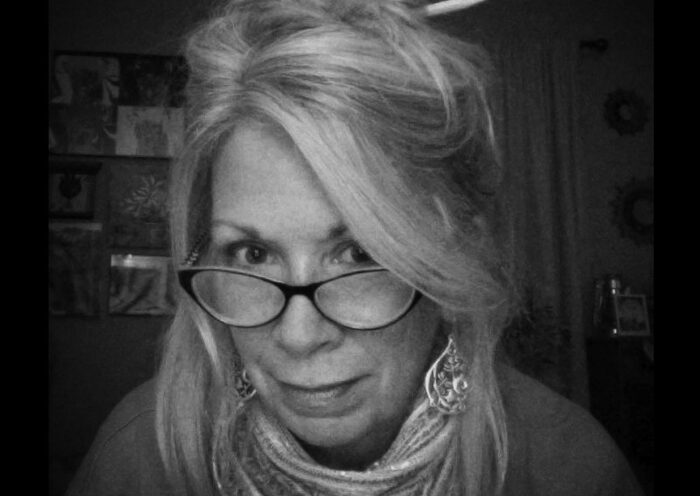



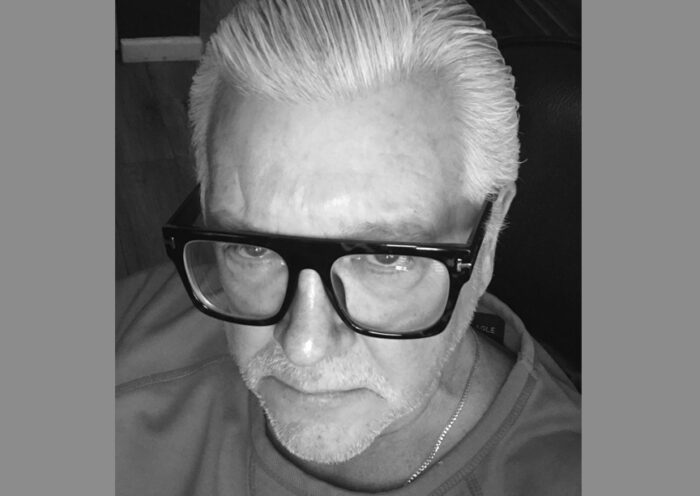



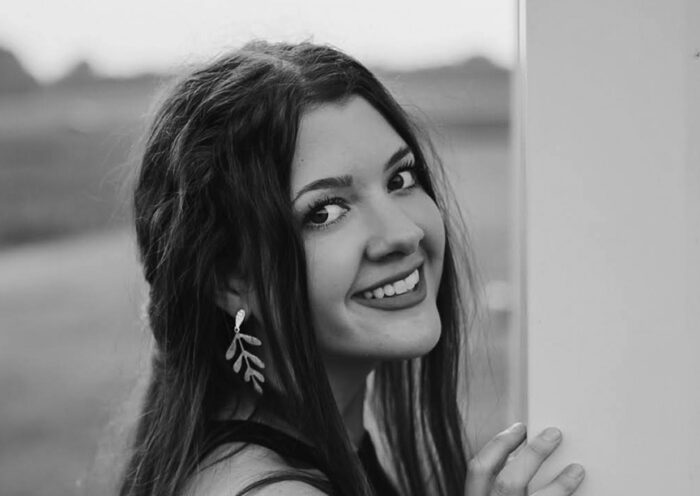
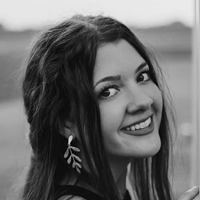


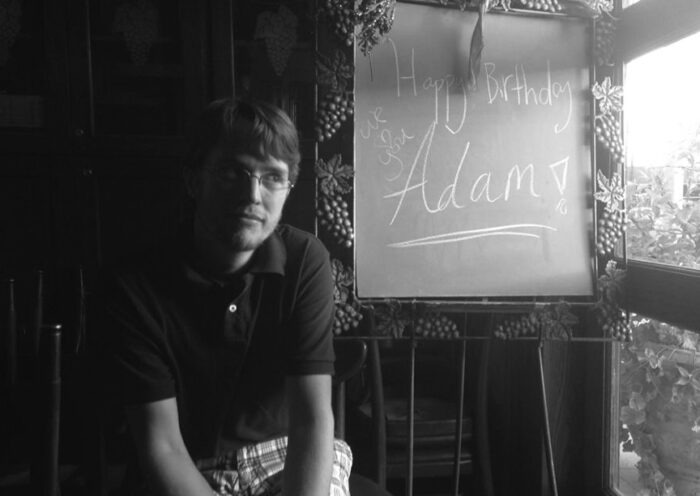





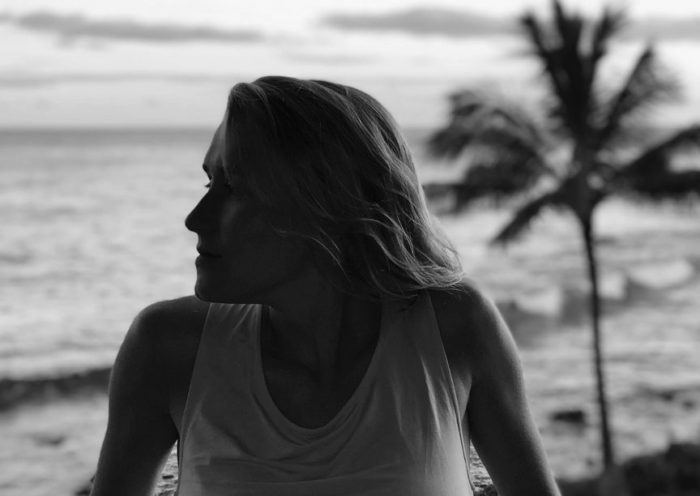
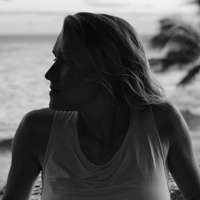
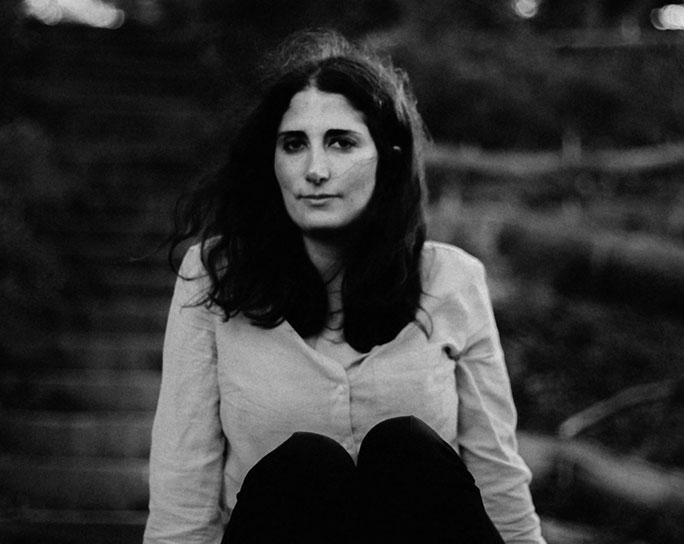
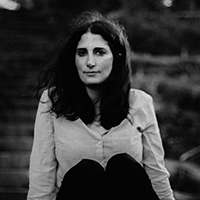 Jacqueline Berkman is a writer based in San Francisco. Her short fiction has been published in The Writing Disorder, Waccamaw, and The East Bay Review, among other places. Her short story “Picking Locks,” which was adapted into the short film “Panofsky’s Complaint,” was screened at the Brooklyn Short Film Festival in June 2016.
Jacqueline Berkman is a writer based in San Francisco. Her short fiction has been published in The Writing Disorder, Waccamaw, and The East Bay Review, among other places. Her short story “Picking Locks,” which was adapted into the short film “Panofsky’s Complaint,” was screened at the Brooklyn Short Film Festival in June 2016.
 Tommy Dean is the author of a flash fiction chapbook entitled Special Like the People on TV from Redbird Chapbooks. A graduate of the Queens University of Charlotte MFA program, he has been previously published in the Watershed Review, Wilderness House Literary Review, r.kv.r.y, Boston Literary Magazine, Foliate Oak, and Gravel. Find him @TommyDeanWriter on Twitter.
Tommy Dean is the author of a flash fiction chapbook entitled Special Like the People on TV from Redbird Chapbooks. A graduate of the Queens University of Charlotte MFA program, he has been previously published in the Watershed Review, Wilderness House Literary Review, r.kv.r.y, Boston Literary Magazine, Foliate Oak, and Gravel. Find him @TommyDeanWriter on Twitter.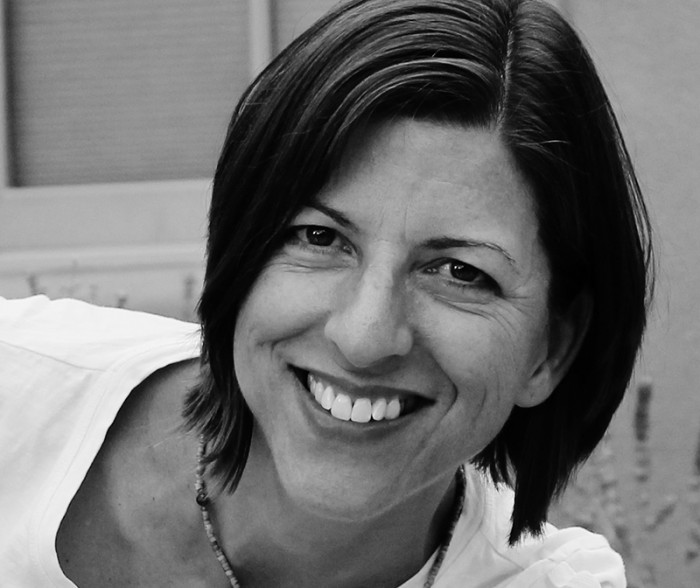
 Sara Regezi is a former copywriter, former comic, former musician, and current nurse practitioner in Silver Spring, Maryland. She wants to marry Jess Walter except that she’s already married (and so is he, probably). Her previous work has appeared on girlcomic.net and live onstage with Monalog Cabin. She is thrilled to be published in Writing Disorder.
Sara Regezi is a former copywriter, former comic, former musician, and current nurse practitioner in Silver Spring, Maryland. She wants to marry Jess Walter except that she’s already married (and so is he, probably). Her previous work has appeared on girlcomic.net and live onstage with Monalog Cabin. She is thrilled to be published in Writing Disorder.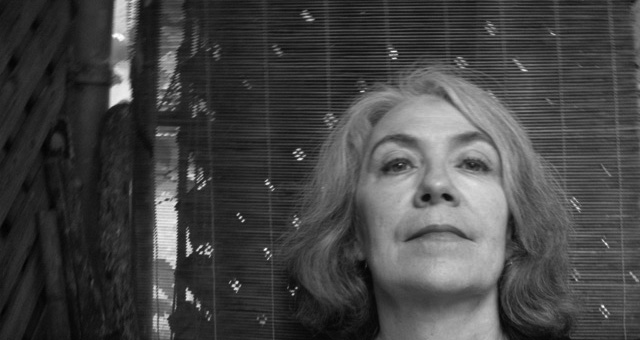
 Susan Lloy has honed her perceptual skills working in diverse environments; from handling nitro and explosives in the Canadian North to slinging drinks in Halifax, she now coordinates a Cardiac Surgery Unit in Montreal. A graduate of the Nova Scotia College of Art & Design, Susan has published twice with Revolution House, Production Gray Editions, Penduline Press, PARAGRAPHITI, Beecher’s, The Prague Revue, The Round Up Writer’s Zine and this September with The Writing Disorder based in Los Angeles and the Amsterdam Quarterly. She will be published again in late October with Blue Crow Magazine out of Australia. She has just finished a short story collection.
Susan Lloy has honed her perceptual skills working in diverse environments; from handling nitro and explosives in the Canadian North to slinging drinks in Halifax, she now coordinates a Cardiac Surgery Unit in Montreal. A graduate of the Nova Scotia College of Art & Design, Susan has published twice with Revolution House, Production Gray Editions, Penduline Press, PARAGRAPHITI, Beecher’s, The Prague Revue, The Round Up Writer’s Zine and this September with The Writing Disorder based in Los Angeles and the Amsterdam Quarterly. She will be published again in late October with Blue Crow Magazine out of Australia. She has just finished a short story collection.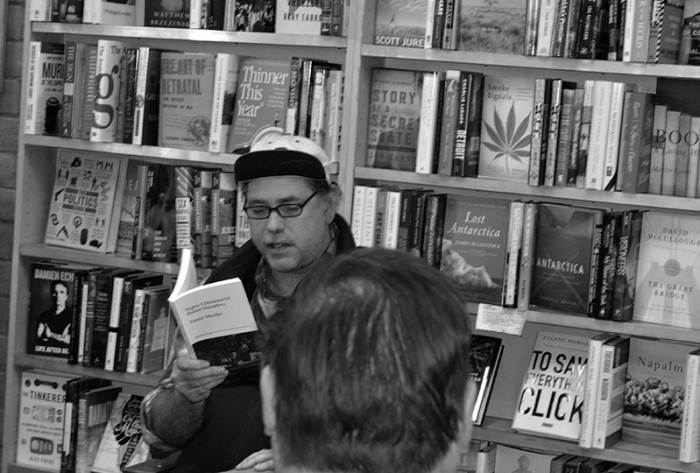
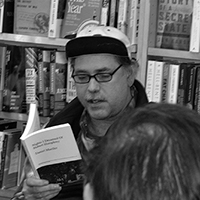 Daniel Mueller is the author of two collections of short stories, How Animals Mate (Overlook Press 1999), which won the Sewanee Fiction Prize, and Nights I Dreamed of Hubert Humphrey (Outpost 19 Books 2013). His work has appeared in numerous magazines and journals, including The Iowa Review, The Missouri Review, Story Quarterly, The Cincinnati Review, Prairie Schooner, CutBank, Joyland, Surreal South, Another Chicago Magazine, The Mississippi Review, Story, The Crescent Review, and Playboy. He is the recipient of fellowships from the National Endowment for the Arts, Massachusetts Cultural Council, Fine Arts Work Center in Provincetown, Henfield Foundation, University of Virginia, and Iowa Writers’ Workshop. He directs the creative writing program at University of New Mexico and serves on the creative writing faculty of the Low-Residency MFA Program at Queens University of Charlotte.
Daniel Mueller is the author of two collections of short stories, How Animals Mate (Overlook Press 1999), which won the Sewanee Fiction Prize, and Nights I Dreamed of Hubert Humphrey (Outpost 19 Books 2013). His work has appeared in numerous magazines and journals, including The Iowa Review, The Missouri Review, Story Quarterly, The Cincinnati Review, Prairie Schooner, CutBank, Joyland, Surreal South, Another Chicago Magazine, The Mississippi Review, Story, The Crescent Review, and Playboy. He is the recipient of fellowships from the National Endowment for the Arts, Massachusetts Cultural Council, Fine Arts Work Center in Provincetown, Henfield Foundation, University of Virginia, and Iowa Writers’ Workshop. He directs the creative writing program at University of New Mexico and serves on the creative writing faculty of the Low-Residency MFA Program at Queens University of Charlotte.
 Virginia Luck’s work can be seen in Typehouse Literary Magazine, Pif Magazine, Burnside writers and elsewhere; forthcoming in Juked Magazine. She is an editor for the online publication Rawboned and lives in Seattle.
Virginia Luck’s work can be seen in Typehouse Literary Magazine, Pif Magazine, Burnside writers and elsewhere; forthcoming in Juked Magazine. She is an editor for the online publication Rawboned and lives in Seattle.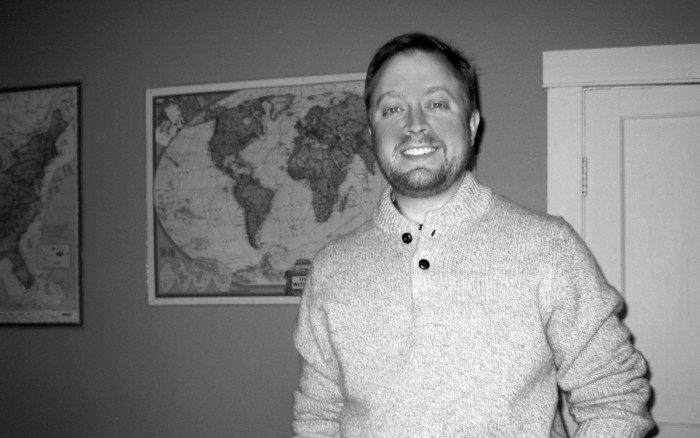
 Walter B. Thompson is a native of Nashville, Tennessee. His work has previously appeared in The Bicycle Review, Carolina Quarterly and elsewhere. He received his M.F.A. from the University of Wisconsin, where he is currently the Halls Emerging Artist Fellow at the Wisconsin Institute for Creative Writing.
Walter B. Thompson is a native of Nashville, Tennessee. His work has previously appeared in The Bicycle Review, Carolina Quarterly and elsewhere. He received his M.F.A. from the University of Wisconsin, where he is currently the Halls Emerging Artist Fellow at the Wisconsin Institute for Creative Writing.
 Anna Boorstin grew up riding horses, playing board games and reading. After attending Yale, she worked as a sound editor on films such as Real Genius and Clue. She raised three children and is happy to have (finally) found her way back to writing. Her story, Paper Lantern, made the Top 25 of Glimmer Train’s August 2013 Award for New Writers and was recently published in december magazine. Her Lizard Story was in Fiddleblack. She also blogs at
Anna Boorstin grew up riding horses, playing board games and reading. After attending Yale, she worked as a sound editor on films such as Real Genius and Clue. She raised three children and is happy to have (finally) found her way back to writing. Her story, Paper Lantern, made the Top 25 of Glimmer Train’s August 2013 Award for New Writers and was recently published in december magazine. Her Lizard Story was in Fiddleblack. She also blogs at 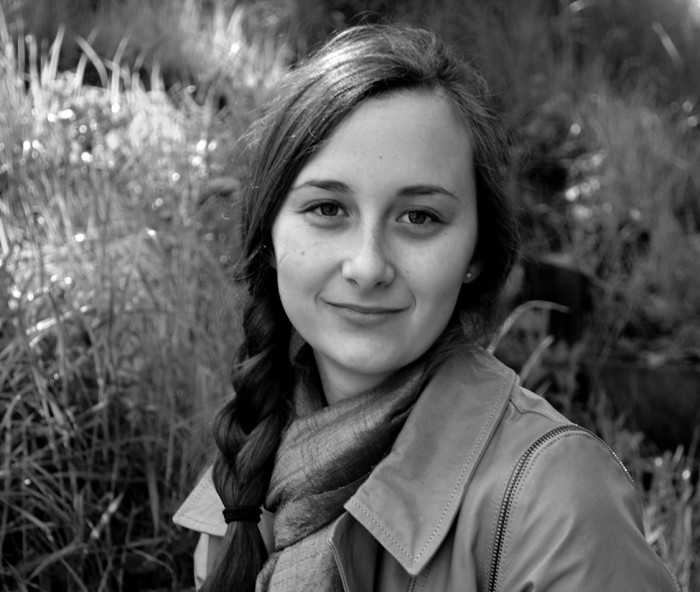
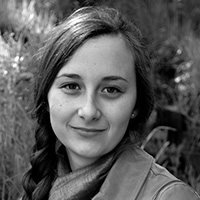 Evelyn Levine is a senior English major at Whitman College. A native of San Francisco, she hopes to one day be able to afford the rent. Evelyn enjoys spending time with her vocal cat Alan, baking for friends and family, learning Tai Chi, and playing the mandolin (albeit unskillfully). This is Evelyn’s first fiction publication.
Evelyn Levine is a senior English major at Whitman College. A native of San Francisco, she hopes to one day be able to afford the rent. Evelyn enjoys spending time with her vocal cat Alan, baking for friends and family, learning Tai Chi, and playing the mandolin (albeit unskillfully). This is Evelyn’s first fiction publication.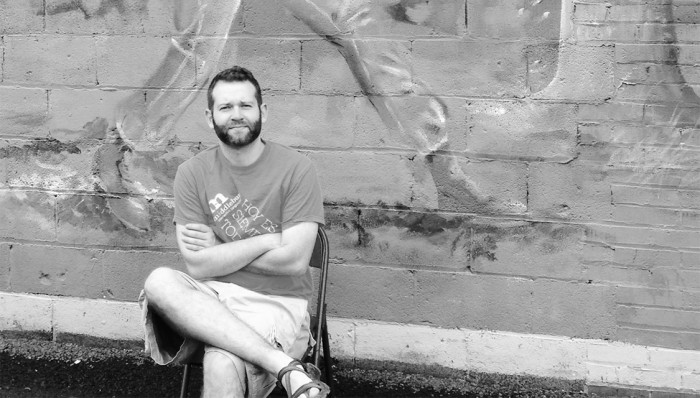
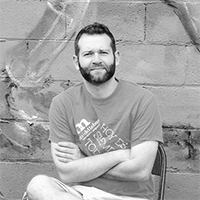 A. A. Weiss grew up in Maine and works as a foreign language teacher after having lived in Ecuador, Mexico and Moldova, where he served in the U. S. Peace Corps from 2006-2008. His writing has appeared in Hippocampus, 1966, Drunk Monkeys, Vol. 1 Brooklyn, and Pure Slush, among others, and was nominated for a Pushcart Prize. He lives in New York City. Website:
A. A. Weiss grew up in Maine and works as a foreign language teacher after having lived in Ecuador, Mexico and Moldova, where he served in the U. S. Peace Corps from 2006-2008. His writing has appeared in Hippocampus, 1966, Drunk Monkeys, Vol. 1 Brooklyn, and Pure Slush, among others, and was nominated for a Pushcart Prize. He lives in New York City. Website: 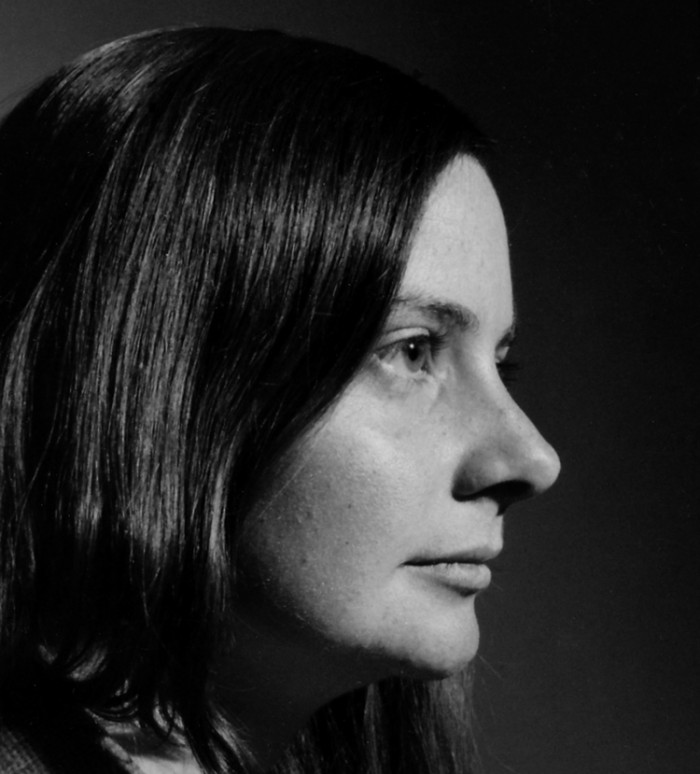
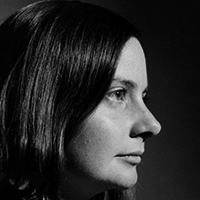 Veronica O’Halloran has taught English, Media Studies and Cultural Studies in high schools and colleges in Adelaide, Melbourne, and Los Angeles. She now lives in Cuença, Ecuador, where she is working on a book of short stories and completing a novel.
Veronica O’Halloran has taught English, Media Studies and Cultural Studies in high schools and colleges in Adelaide, Melbourne, and Los Angeles. She now lives in Cuença, Ecuador, where she is working on a book of short stories and completing a novel.











